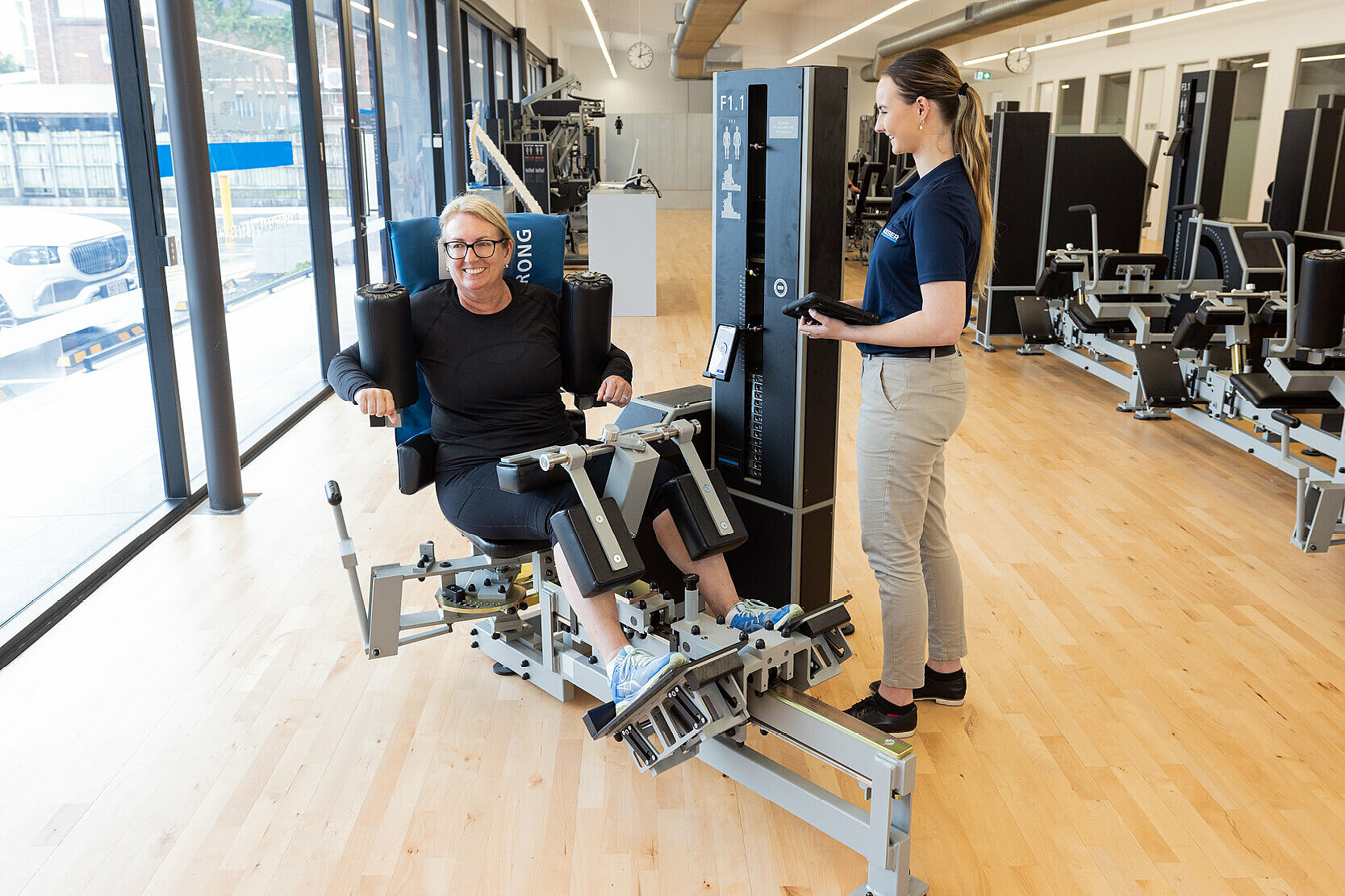The relationship between physical activity and cancer

Regular physical activity has been consistently associated with a lower risk of developing certain types of cancer. Additionally, it plays a significant role in improving outcomes and quality of life for cancer survivors. It is important to note that individuals should consult with their healthcare providers before starting or making significant changes to their exercise routines, especially if they have been diagnosed with cancer or are undergoing cancer treatment. Healthcare professionals can provide personalised guidance based on individual circumstances.
The benefits of exercise for cancer survivors
Research indicates a number of benefits of exercise for those recovering from cancer treatments. Some of these benefits include an improvement in:
- Health and well-being
- Strength and muscle bulk
- Energy levels
- Bone mineral density
- Balance and stability
- Cardiovascular health
- Immune function
- Pelvic floor function
- Treatment efficiency
Regular exercise also resulted in a reduction in stress, "chemo brain", risk of developing diabetes, heart disease, osteoporosis, and treatment-related side effects.
Tailored exercise programs during and post cancer treatment
At Kieser, our team produce results with well-structured, efficient exercise programs. Kieser's programs are designed and overseen by health professionals to ensure that each individual client has a personalised program. Kieser's programs allow clients to improve their strength in a well-controlled, safe environment under the close supervision of qualified health professionals. This makes training much safer not only for clients with chronic conditions, but clients of all ages who risk injury in an unsupervised gym or home environment.
The science behind exercise and cancer
In the past, patients being treated for a chronic illness were often told to rest and reduce their physical activity. Newer research has shown that exercise is not only safe and possible during cancer treatment, but it can improve your physical function as well as your quality of life. While exercise has demonstrated benefits for various types of cancer, there has been extensive research conducted on the following types:
- Breast Cancer - There have been a number of large scale studies that show that physically active women have a lower risk of breast cancer than inactive women. In a recent analysis of over 73 studies conducted across the world, there was a 25% average risk reduction amongst physically active women as compared to the least active women.
- Colon Cancer - Physical activity has one of the strongest links to reduce the rate of colon cancer as compared to other cancers. Australia has some of the highest rates of colon cancer and today 1 in 13 Australians will develop the disease. Among both females and males, greater levels of physical activity lead to reduced numbers in those diagnosed with colon cancer. Men who are physically active have a 30-40% reduced risk of colon cancer and women have shown a 10-20% reduction. Research has shown that moderate-high levels of exercise per week (>4hrs) has been shown to reduce the risk of colon cancer as well as improving survival rates.
- Prostate Cancer - Moderate to high intensity aerobic exercise and resistance training is linked to a number of positive benefits for patients diagnosed with prostate cancer including, improved mental health, improved QOL, improved sexual function, decreased PSA levels, decreased fatigue and decreased depression.
Physical activity is associated with a significantly decreased risk of not only these three cancers, but also endometrial cancers, esophageal cancer, liver cancer, stomach cancer, kidney cancer, myeloid leukemia and cancers of the head and neck, bladder, and lung.

How can an Exercise Physiologist help individuals during or after cancer treatment?

Kieser Exercise Physiologists are qualified to provide a structured, progressive exercise plan suitable to the stage of cancer, whether it be pre, during or post treatment. They are also able to provide education on weight management which has been shown to reduce the risk of some types of cancer. Exercise Physiologists are also able to provide post-operative rehabilitation to relieve some of the side effects of some cancer treatment types.
An Exercise Physiologist will take all considerations into account, including, but not limited to, cancer grade, cancer stage, previous treatment, current side-effects and symptoms and current exercise capacity.
Group classes led by an Exercise Physiologist for cancer treatment and recovery
Are you struggling to cope with cancer treatments? Are you interested in learning how to get back to feeling your best post cancer treatment? If so, consider joining our weekly group classes for cancer, Train for Change, run by an Accredited Exercise Physiologist. Classes are currently available at our clinics in Geelong, Caulfield and Sandringham. Classes are appropriate for either those currently going through treatment or those who have previously undergone treatment. Programs will be customised to each individual’s particular needs and are run in small groups. An assessment with an Exercise Physiologist needs to be conducted before joining any group class.
If you're interested in joining Kieser's Train for Change group class, click here to request a booking for an initial assessment with an Exercise Physiologist.
Book an initial assessment with an Exercise Physiologist
Fill out our form below with your details and our team will be in touch shortly to help arrange an appointment.
